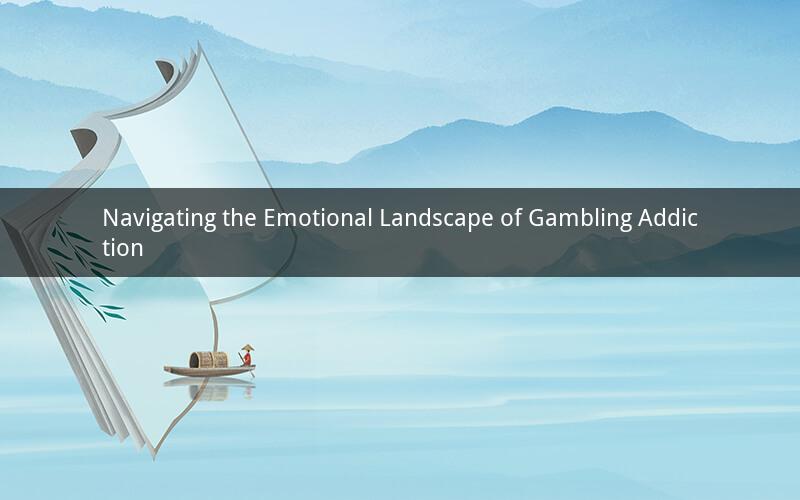
Introduction:
Gambling addiction, also known as compulsive gambling, is a complex condition that affects individuals on multiple levels. Understanding the emotional experience of those grappling with this addiction can provide valuable insights into the challenges they face. This article explores the emotional aspects of gambling addiction, offering a glimpse into the thoughts, feelings, and behaviors that characterize this condition.
The Emotional Journey of a Gambler:
1. The Thrill of the Game:
At the onset, gambling can be an exhilarating experience. The rush of adrenaline and the anticipation of winning create a sense of excitement and euphoria. Gamblers often describe the initial stages as a thrilling adventure, where they feel alive and invigorated.
2. The Allure of Success:
The prospect of winning money can be incredibly appealing. Gamblers may experience a strong sense of achievement and satisfaction when they win, reinforcing their desire to continue gambling. The allure of success creates a cycle of hope and anticipation, making it difficult for individuals to resist the temptation to gamble again.
3. The Fear of Loss:
As gambling progresses, the fear of losing becomes increasingly prevalent. Gamblers may start to feel anxious, nervous, and even panicky when they face the possibility of losing money. This fear can be overwhelming, leading to a heightened sense of urgency to win back what has been lost.
4. Guilt and Shame:
The realization that gambling has become a problem can bring about intense feelings of guilt and shame. Gamblers may feel guilty for lying to loved ones, spending money they cannot afford, or neglecting responsibilities. The sense of shame can be paralyzing, making it even harder for individuals to seek help.
5. Emotional Distress:
Gambling addiction can lead to a range of emotional distress, including depression, anxiety, and irritability. The constant pressure to win and the fear of losing can take a toll on an individual's mental health, leading to feelings of isolation and hopelessness.
6. Relapse and Desperation:
As the addiction deepens, gamblers may experience frequent relapses. The cycle of winning and losing can become increasingly intense, leading to a desperate need to win back what has been lost. This desperation can drive individuals to take increasingly risky behaviors, further exacerbating their addiction.
7. The Search for Help:
Finally, many gamblers reach a point where they seek help. The emotional toll of gambling addiction can be overwhelming, and the desire to regain control over one's life becomes a priority. The journey to recovery involves confronting the emotional aspects of addiction and developing healthier coping mechanisms.
Frequently Asked Questions:
1. What are the signs of a gambling addiction?
Ans: Signs of a gambling addiction may include preoccupation with gambling, a need to increase the amount of money wagered to achieve the same thrill, lying about gambling activities, neglecting responsibilities, and experiencing emotional distress as a result of gambling.
2. Can gambling addiction be cured?
Ans: While there is no quick fix for gambling addiction, it is a treatable condition. With the right support and treatment, individuals can overcome their addiction and develop healthier coping mechanisms.
3. How can I help a loved one with a gambling addiction?
Ans: Encouraging your loved one to seek help, providing a supportive environment, and being patient and understanding are crucial steps in helping someone with a gambling addiction. It is also important to take care of yourself during this process to avoid burnout.
4. Are there any medications to treat gambling addiction?
Ans: Currently, there are no medications specifically designed to treat gambling addiction. However, medications may be used to manage co-occurring conditions, such as depression or anxiety, which may contribute to the gambling behavior.
5. Can therapy help with gambling addiction?
Ans: Yes, therapy can be highly effective in treating gambling addiction. Cognitive-behavioral therapy (CBT) is particularly beneficial in helping individuals identify and change harmful gambling-related thoughts and behaviors.
Conclusion:
Understanding the emotional landscape of gambling addiction is crucial for recognizing the challenges faced by individuals struggling with this condition. By addressing the emotional aspects of addiction, individuals can take the first steps towards recovery and develop healthier coping mechanisms. Seeking help and support is essential in overcoming gambling addiction and regaining control over one's life.